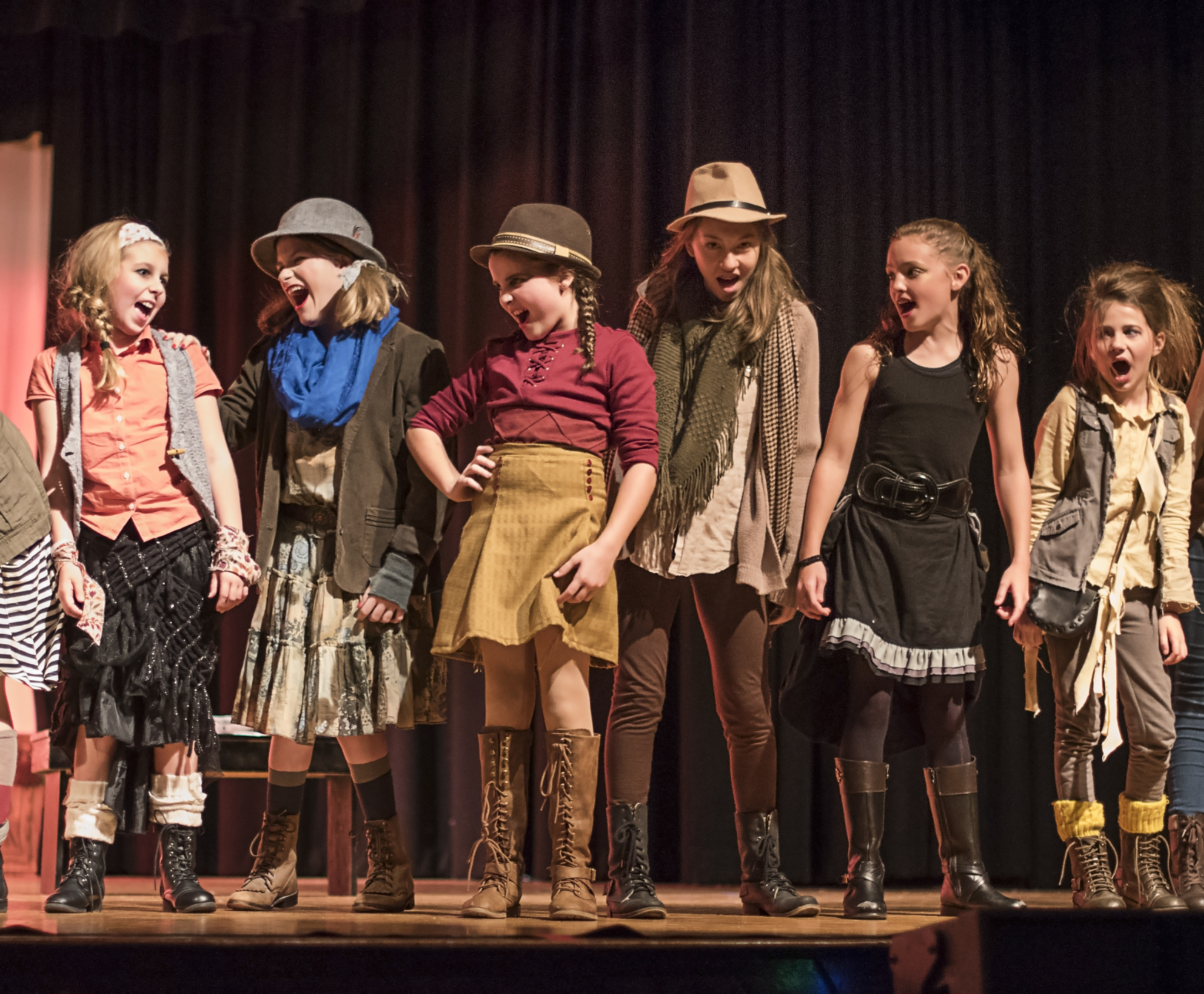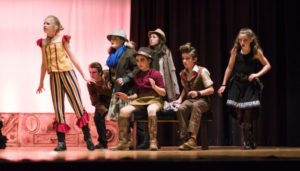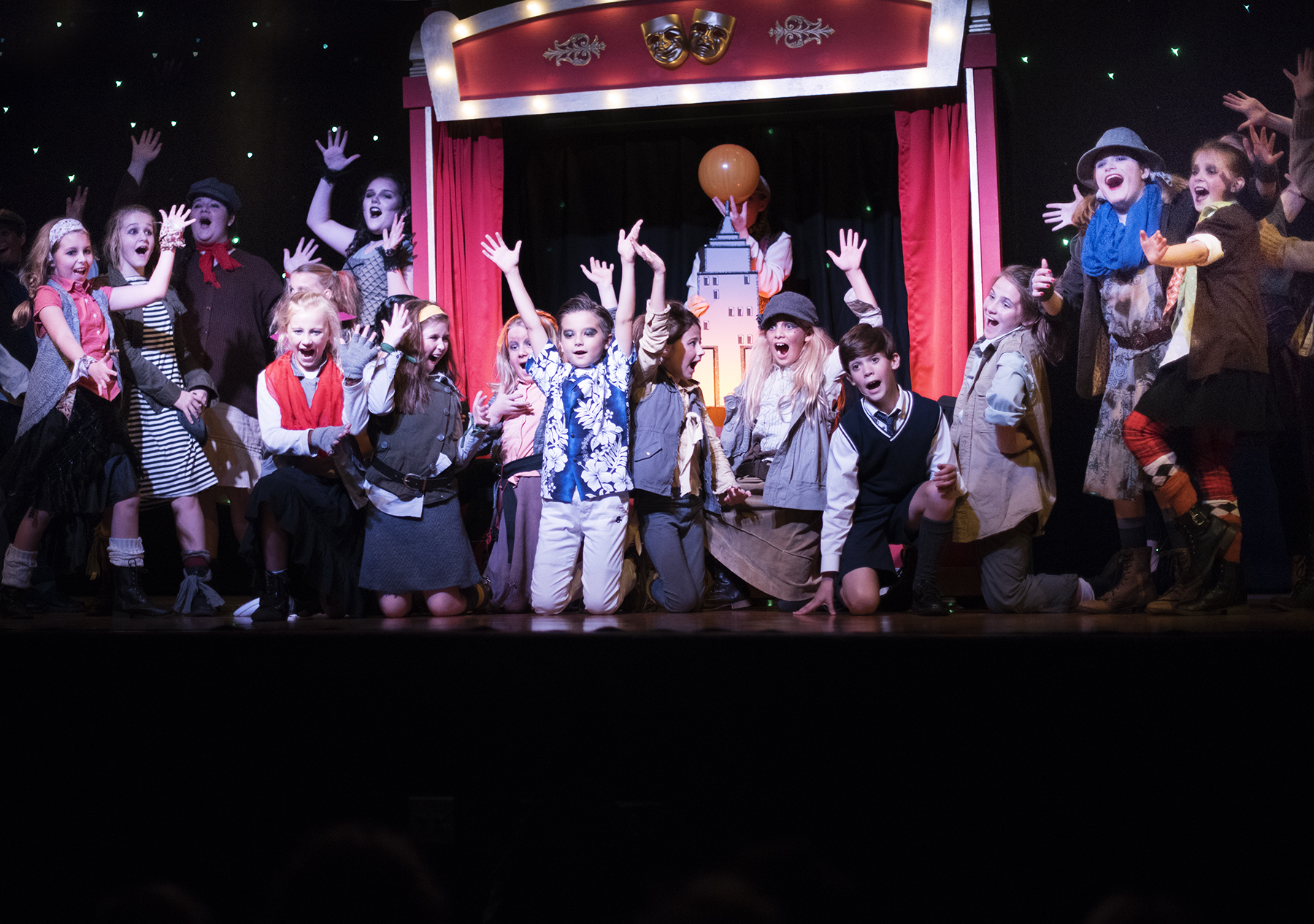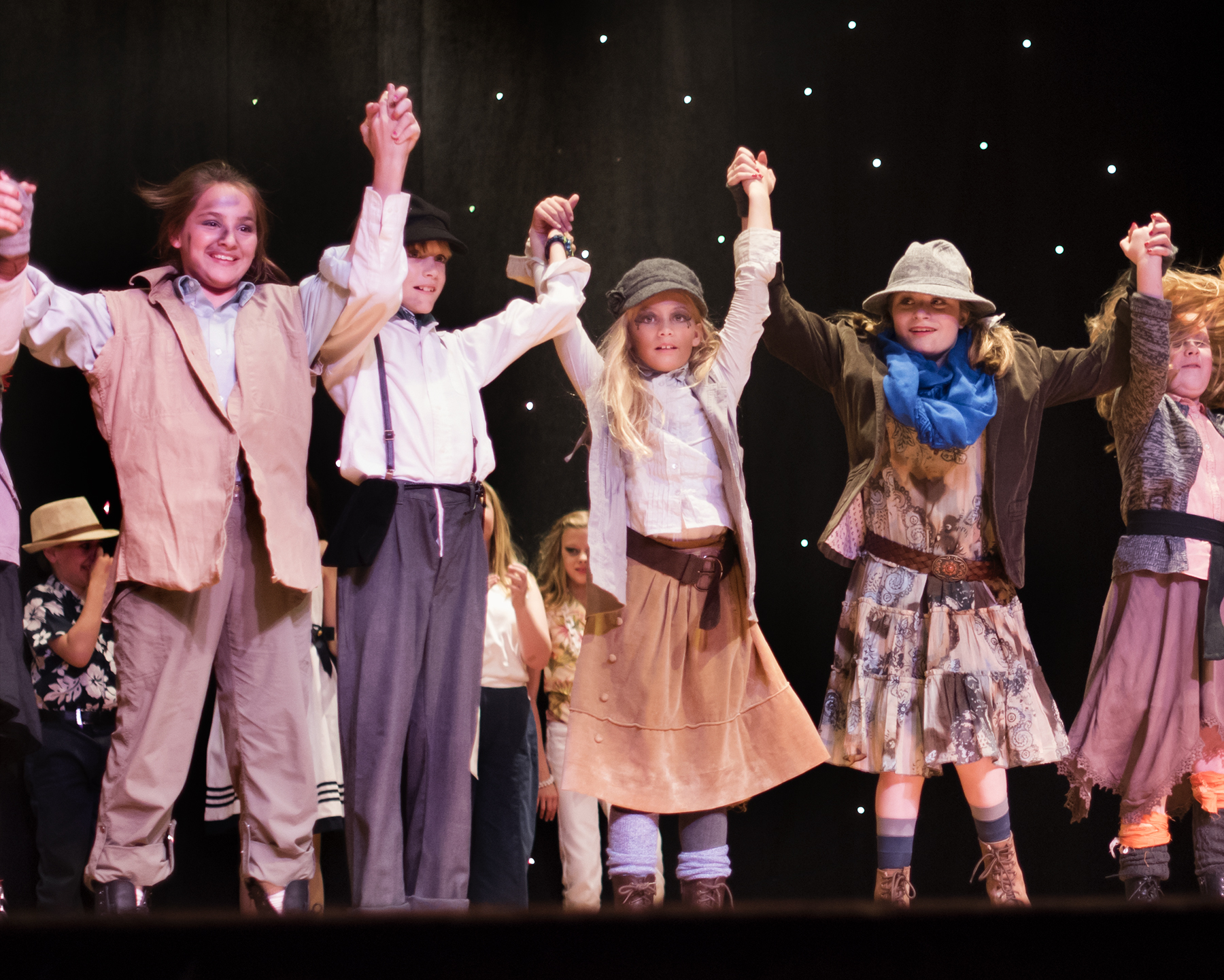
Longtime readers know that Sarah Kate once had a small role in a local children’s theater production of Shrek, Jr., and that she spent three semesters singing with the same organization’s show choir. She opted not to return to the vocal group at the end of the spring semester nor to do another play with them, not because of disinterest but a series of unpleasant experiences. I prefer not to dwell too much on the water that’s already flowed under the bridge and instead just note that we won’t go back across that bridge in the future.
We wondered if she would forever be relegated to karaoke and church choir.
In our area, we have more than one option for children’s performance, and after a fair amount of prodding Sarah Kate decided to participate in a camp this summer with Eastern Shore Repertory Theatre (ESRT). ESRT has an excellent reputation of quality performances, but she had been hesitant to try it in the past because, quite frankly, she didn’t feel she had a shot. But if you pay your money and send in your fees, you’re “in” for camp, so in late July she was a poor widow in Godspell, Jr., directed by a woman who declared to Sarah Kate and me at the beginning of camp that “theater is for everyone.”
One month later, she was beyond excited to be selected for the cast of ESRT’s production of James and the Giant Peach, Jr. She would play the part of a vagrant – a non-speaking ensemble role, but before the auditions began we declared we would be happy with her in the role of peach fuzz as long as she was in the show. For the past couple of months she’s been rehearsing, and whatever worries I may have had way back in August went out the window early on. “Theater is for everyone” is no longer something we want to be true, but something she experienced firsthand.

A few weeks into rehearsals, Sarah Kate declared ESRT to be “like a family,” began regaling us with stories of what so-and-so did or said, and came home from every rehearsal with a grin on her face and laughter on her lips. She became friendly with the experienced older kids with lead roles all the way down to the most green members of the ensemble, walked with other cast members after rehearsals to eat and hang out, and never once complained about being shunted to the side, or coddled, or underestimated.
A few weeks in the director gave her an added responsibility – a single line (added after the fact and the only one uttered by a vagrant). Later, she asked Sarah Kate to be in charge of a key special effect – the spell which causes the peach to grow – and during the final week of rehearsal, she was tapped to come onstage once more as a “cloud”. It was clear to me – and, more importantly, to her – that she was a valued member of the cast, fully included.
The play premiered this past weekend and on Friday, after watching the first five minutes of the show and noting just how much talent they had and how much the cast was expected to move, I marveled at the fact that she was cast at all. Sarah Kate’s inclusion is all the more notable when you understand the obstacles that professional actors with disabilities face.

Although the number of characters with disabilities on prime-time television has almost doubled in the past year, they still number less than 2% of characters despite the fact that 56 million Americans – roughly 20% of the population – has some sort of disability. Even more concerning? Only about 5% of characters with disabilities are actually played by actors with disabilities. Actors with disabilities fight an uphill battle just to be cast as a character with a disability – never mind being cast as a character without one.
Today, I am thankful for a director who saw potential in my daughter.
Competition for a spot in the cast was fierce – the only blemish on Sarah Kate’s experience was that a friend of hers with a lovely singing voice (and no disability) not only didn’t make the show, but didn’t have a vocal callback, either. The director took a chance on a kid that a lot of people wouldn’t have considered, and the kids and other adults who worked on the show welcomed her with no strings attached – not as a charity case, or a service project, an “inspiration” or a mascot.
As I wrote back in the spring,
Inclusion is not defined as opening the doors to let disabled individuals enter, but welcoming them and having them participate fully. It is not easy to take the extra steps toward true inclusion, but it is important for the child struggling to get a foot in the door…”

Theater truly can be for everyone.
Photos Courtesy of Beth Glisson Photography
For more on the current state of disability inclusion in Hollywood, I encourage you to read Hollywood’s ‘Diversity Push’ Excludes People With Disabilities, and That Affects You.

I am glad to read that this was a positive experience for Sarah Kate and her Mom!
As for the callbacks–I’ve done theater since I was five years old. Sometimes that just happens. The director wants a certain look, a certain sound, whatever. I’ve found in my theater experiences as an adult that, especially with straight plays, the director wants a certain look for a character, and I might just not have it. That’s how the dice are rolled.
As far as casting actors with disabilities as the characters with disabilities: This gets….tricky. A lot of shows that feature disabled characters aren’t even done. Take, for instance, the show “Children of a Lesser God.” This won Tony Awards and even Academy Awards for the movie. But the author requires that the Deaf/Hard of Hearing Characters be played by Deaf or HOH actors. That makes sense, since it’s SUCH a huge thing in the show, and the female lead is Deaf, who signs all her lines, only speaking a few at the very end. But because it’s so hard to cast, it never gets done. I’ve actually asked several directors of my acquaintance to mount it because I’d LOVE to be in….but no dice so far.
It’s such a chicken or egg thing. Are the roles not there because they don’t have the actors, or are there no actors because there are no roles? Ultimately, casting directors and writers need to take a good look at this and figure out a way to get the actors and the roles. Representation is SO important!
Glad she is with a Theater company that includes her and has family type relationships with each other. And I suspect her personality and how she projects resonated with the right people. And those qualities will carry her very far in life. Nice to see inclusion in action.
I am so happy by the way Sarah Kate’s theatre group has wholeheartedly included her. I am a person with CP who participated in theatre and choir in middle school and jazz choir in high school, and I have had my own unpleasant experiences with theatre in particular (I couldn’t make it into the middle school plays because although I made it through singing auditions, I am an uncoordinated dancer due to my CP and could never make it through dance callbacks.) It is unfortunate that Sarah Kate also has had difficult experiences with theatre in the past, , but I hope that more groups will follow the lead of the one she’s in; fully including those with disabilities and cultivating a familial atmosphere where people of all backgrounds and abilities are welcome. If theatre programs and choirs accomplish this, maybe that attitude will translate to T.V. and there will finally be a shift in the amount of disabled people in disability-oriented roles.
More importantly, GO SARAH KATE!!!
Theater, as with all other fields, demands a certain kind of person. Disability isn’t always a determining factor in if you are that kind of person.
I agree. It’s not always a talent competition, and it’s not always charity. It’s often little things the actors have no idea about. Sometimes the cute girl with the lovely voice doesn’t get the lead role because the other girl had a particular spark, sense of humor or charisma that fitted in the producer’s vision. As a kid, I always wanted the lead female role, like all the other girls. But I was taller and usually got all the “mommy” roles, because physically I simply looked protective above else. Aah, the perks of the acting world!
Absolutely true, Kris! Way back in the day, I was in the final three for the title role in “Annie.” I was a little too old for the part, but I was small for my age. In the end, I’m pretty sure one of the factors in the decision not to cast me was, um…the fact that I was “developing” in a way that most 10 year old girls haven’t. 😉